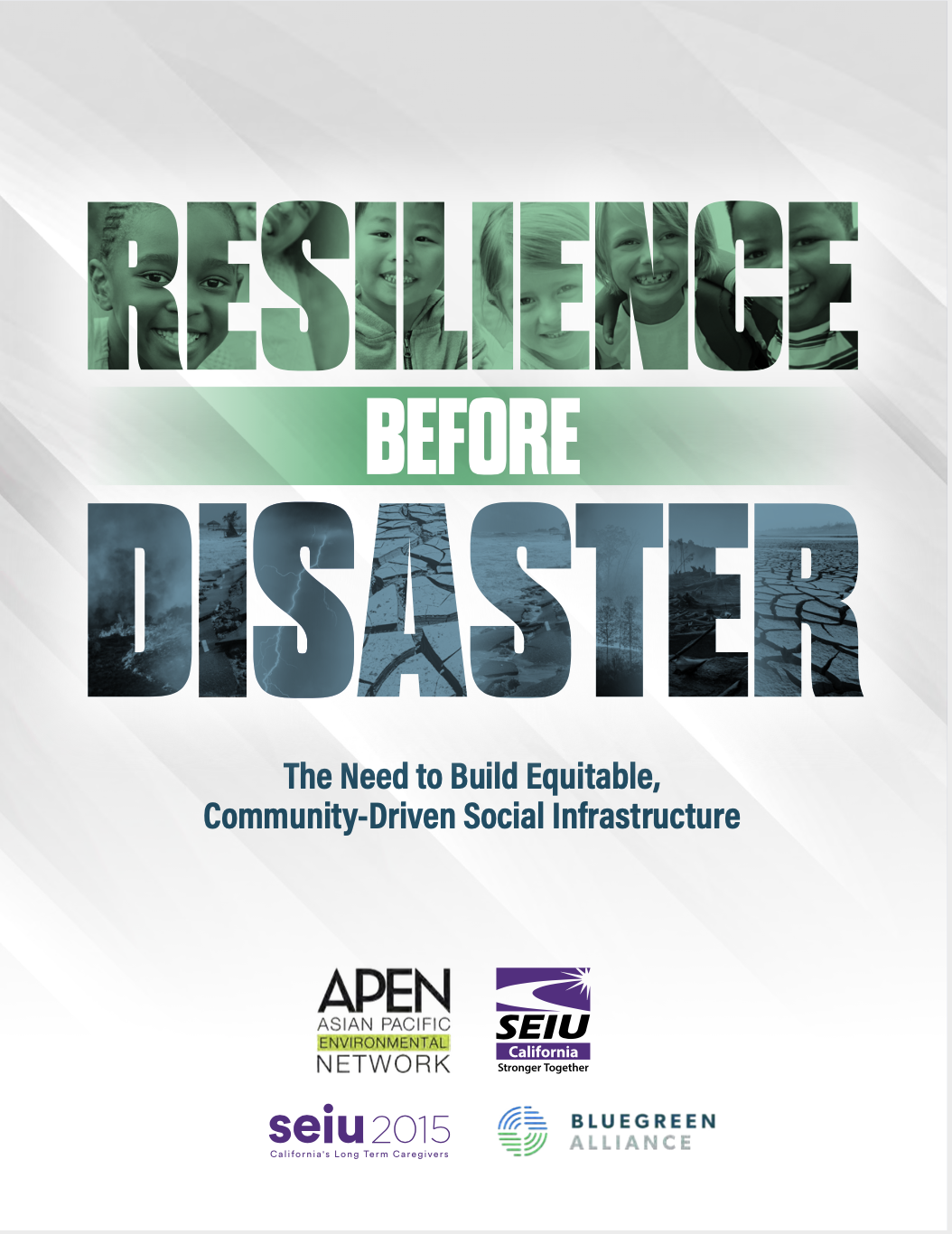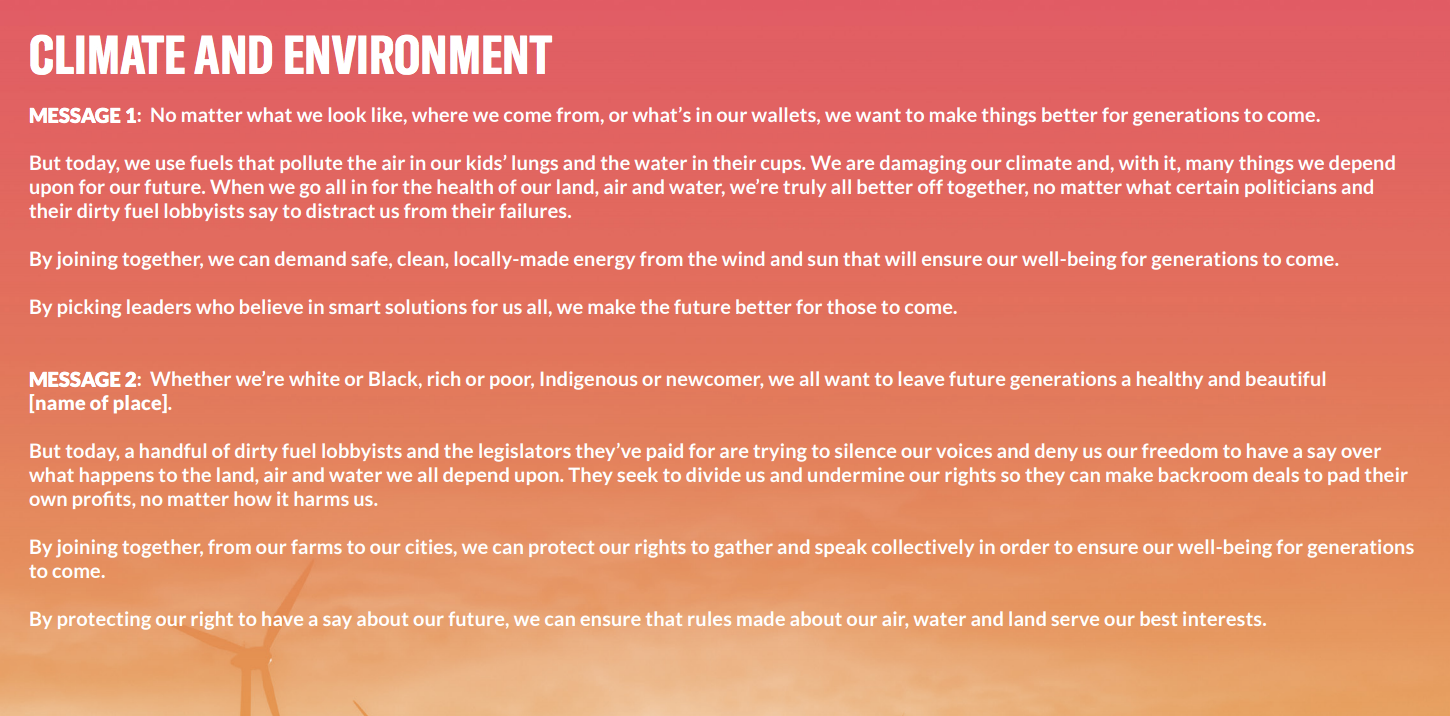Resources
Search below for resources covering the intersection of climate engagement, social science and data analytics.
RESULTS
Community Hearing on Transit Equity 2021: Findings and Recommendations
Increasing accessibility, affordability, and reliability of public transit is imperative for BIPOC, low-income people, those living in rural areas, seniors, youth, and people with disabilities. COVID-19 exacerbated transportation inaccessibility because of limited routes and slashed service times. It also posed significant threats to transit workers who were not given adequate protection. Transit agencies must have safeguards in place to combat the negative effects of future pandemics as well as climate change. Such policies include better sick and family leave policies for transit drivers and electrification of the transportation sector to meet climate goals.
Resilience Before Disaster: The Need to Build Equitable, Community-Driven Social Infrastructure
California and the US are increasingly beset by climate-fueled disasters like wildfires, extreme heat, and power blackouts. These events put additional stress on frayed hard and social infrastructure systems, and disproportionately impact working-class communities of color. To adapt to these changes, society must update our notion of disaster response to increase resilience in these systems before disasters strike. This report offers two models for this response: 1) building and normalizing resilience hubs where community members gather and organize both in good times and bad, and 2) increasing in-home resilience by recognizing homecare workers as effective agents for assisting vulnerable populations and bridging authorities and the frontlines. The report goes on to recommend specific ways to set up resilience hubs, train care workers, and develop forward-thinking emergency response plans to avert human disasters after natural disasters.
Fueling the Fire: Why Any Fossil Fuel Industry Bailout Will be Disastrous for Communities of Color
This report looks at the intersection of pollution from refining and burning fossil fuels, repiratory diseases caused or exacerbated by this pollution, the impacts of the COVID-19 pandemic, and race and racial inequality in the United States. It makes the case that the CARES Act constitutes a bailout of the dirty energy sector that spent more to prop-up the fossil fuel industry than it did on health care supplies and investments, even as this industry contributes to the adverse health outcomes from the COVID-19 pandemic in communities of color. The report's key findings also link large financial sector players like big banks, asset management companies, private equity and insurance companies to the chain of carbon and chemical emissions that have disproprotionately negative impacts on communities of color and low-income communities.
We Make The Future Messaging Guide
The We Make the Future Messaging Guide is for campaigners, researchers, and all people who want to persuade others to take action to confront the challenges of a changing climate. The guide is based on rigorous research into perception and persuasion, and provide specific recommendations to engage base constituencies and persuade the middle (or people who haven't spent a lot of time thinking about specific solutions). The core of this work is the Race Class Narrative, an approach that weaves together economic empowerment, racial justice, climate justice, and gender equity, using language proven to work to mobilize and persuade people to take action.
This is a how-to guide. It provides guidance on:
- What to say and, crucially, what not to say
- How to weave together the rights words and the right narrative
- How to link related issues such as racial justice and climate justice within all your communications and calls-to-action
- Specific ways to use these messages on email, social media, and via text message
Mobilizing an Indigenous Green New Deal
The NDN Collective offers reflections and amendments to the Green New Deal platform, including:
- Calling for the rejection of "netzero emissions" language, which has long been utilized to advance carbon-trading schemes.
- Clarifying language around “green infrastructure” and “renewable clean energy” whcih has been utilized to describe various carbon capture mechanisms, nuclear energy production, and large hydroelectric dams.
- Supporting the necessity of resistance to extractive industries and infrastructure expansion.
Pagination
- Previous page
- Page 2



